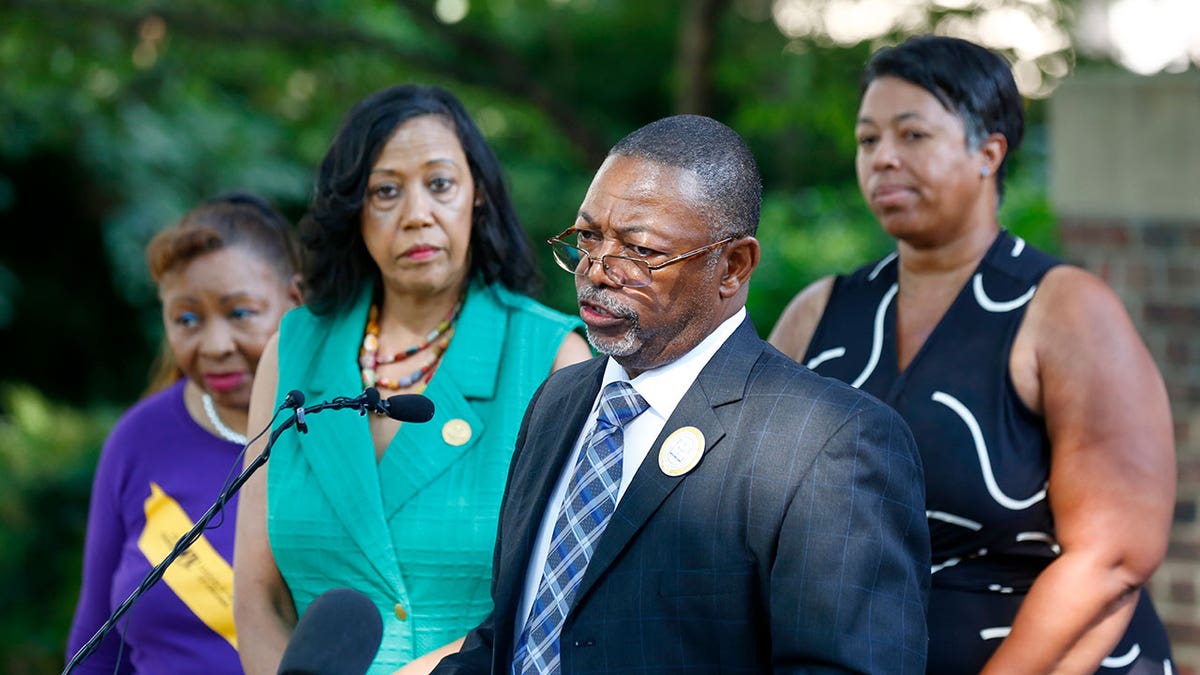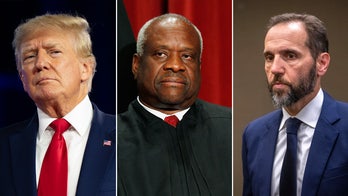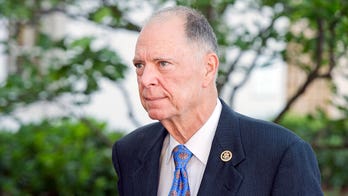Fox News Flash top headlines for July 19
Fox News Flash top headlines are here. Check out what's clicking on Foxnews.com.
The Virginia NAACP on Tuesday called on Gov. Glenn Youngkin to establish clear and publicly available criteria for restoring the voting rights of convicted felons who have served their time, saying the system now is secretive and could discriminate against people of color.
Youngkin has come under scrutiny since his administration confirmed earlier this year that it shifted away from a system used by three of his predecessors that was partly automatic. Two lawsuits have been filed over Youngkin's process, which critics have said is confusing and does not have clear standards on when an application should be granted or denied.
The governor's "painfully slow opaque process is sure to have a discriminatory impact on Black Virginias and other Virginians of color, as well as communities where they live and work," Robert Barnette Jr., president of the NAACP Virginia State Conference, said during a news conference Tuesday.
In Virginia, a felony conviction automatically results in the loss of certain civil rights such as voting, serving on a jury, running for office or carrying a firearm. The governor has the sole discretion to restore them — with the exception of firearms rights, which only a court can do.
In a letter sent to Youngkin Tuesday, Barnette said the NAACP is "deeply concerned" about the possibility that criteria such as applicant’s race, voting history or geographic location "may be determinative in whether their application is denied."
The administration has previously denied that race, religion or ethnicity are considered during the decision-making process, and Youngkin told The Associated Press Tuesday that neither a person's geography nor voting record were being considered.
Secretary of the Commonwealth Kay James, whose office oversees the restoration of rights, explained some of Youngkin's priorities in a letter to the NAACP on Monday, writing that the Republican governor is "less likely to quickly restore the voting rights of anyone who used a firearm in the commission of a crime." She wrote that Youngkin will also "generally speaking, but not always" work to restore the voting rights of those who committed nonviolent crimes.

NAACP Virginia President Robert N. Barnette, Jr. speaks about the changes the Youngkin administration made to restore voting rights to the formerly incarcerated in Richmond on July 18, 2023. (Daniel Sangjib Min/Richmond Times-Dispatch via AP)
Toni Heath Johnson, 60, was released from prison last August after serving a two-year sentence on felony drug charges. Two weeks later, she filed an application seeking to restore her rights. But last month, when she checked the status of her application on a state website, she saw the word "ineligible" next to her name.
"I knew that my felony convictions would get that (right to vote) taken away, but before I was convicted, people were automatically getting their rights back, so I said it doesn't really matter because I can't vote in jail anyway, and when I get out, I'll be able to vote," she said. "I thought it was going to be a temporary thing."
Johnson is a plaintiff in a lawsuit filed last month by the ACLU of Virginia and Protect Democracy, a nonprofit that focuses on voting rights, challenging the state's automatic disenfranchisement of people with felony convictions.
A separate lawsuit filed in April alleges that the discretionary process being used by Youngkin to decide which felons can have their voting rights restored is unconstitutional.
The NAACP said it received several hundred documents from the governor's office in response to public records requests, but none of them make clear the exact criteria the administration is using. The documents, which were reviewed by the AP, show that the state website that outlines the process was changed between September and November 2022, shifting from language that said individuals "are eligible" to language that emphasized individuals must apply to seek restoration of their rights.
The documents also paint a picture of a labor-intensive review process involving sometimes-glitchy government databases and hand-delivered documents.
CLICK HERE TO GET THE FOX NEWS APP
The records show Dianna Fortune, the state’s director of clemency, emailing workers at other agencies including the Department of Elections, State Compensation Board, Department of Behavioral Health and Developmental Services and Department of Corrections requesting information about batches of individuals who had sought to have their rights restored.
In one instance, an employee of the Compensation Board — which maintains data on inmates in jails — told Fortune, "For some reason I’ve had issues with the database we use for this continually crashing on me."
Other emails also highlight the excitement of individuals who received word from the office that their rights were being restored.
"Thanks for notifying me with such amazing news!" one individual wrote in October.
According to a lawsuit filed last month, Virginia is the state with the fifth-highest number of citizens disenfranchised for felony convictions — over 312,000. Black Virginians make up less than 20% of the state’s voting-age population but account for nearly half of all those disenfranchised due to a felony conviction, according to the suit.





